In the pantheon of street photography, steam emerging from city manholes and subway vents has always held a prominent position. The ethereal wisps billowing from the city’s underbelly impart a distinctive, often otherworldly, aesthetic. They can create an element of mystery, drama, or even romance, underlining the urban narrative in a most compelling way.
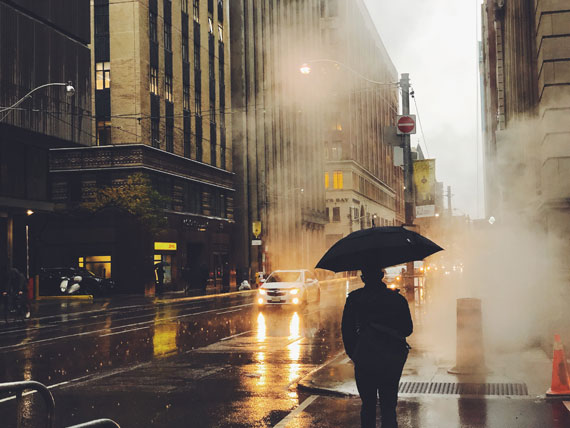
Photo captured by Jane Palash
So how do we go about photographing steam effectively? Let’s delve into some crucial tips and techniques that will help you unlock this intriguing aspect of urban photography.
Timing is Everything
Just like other forms of photography, capturing steam is all about finding the right light. Dawn or dusk – also known as the “Golden Hours” – offer the most dramatic lighting conditions for street photography. The low angle of the sun during these times can backlight the steam, making it glow with a magical luminance. It’s not just about daylight either; nighttime street photography can create stark, film noir-inspired images with steam beautifully illuminated by artificial city lights.
Experiment with Exposure
Steam can be tricky to expose correctly due to its translucent nature and the fluctuating light conditions of a city. It’s best to shoot in RAW format for more flexibility in post-processing. Overexposing the steam can make it lose texture and detail, while underexposing might hide it altogether. Use spot metering mode on your camera to measure light from the steam itself and adjust your exposure accordingly.
Focus on Composition
With the chaotic backdrop of a bustling city, composing a clean shot is a challenge. When photographing steam, use it as a focal point or as a leading line, guiding the viewer’s eye through the image. Look for frames within the frame, such as buildings, bridges, or even people, to add context and create a story.
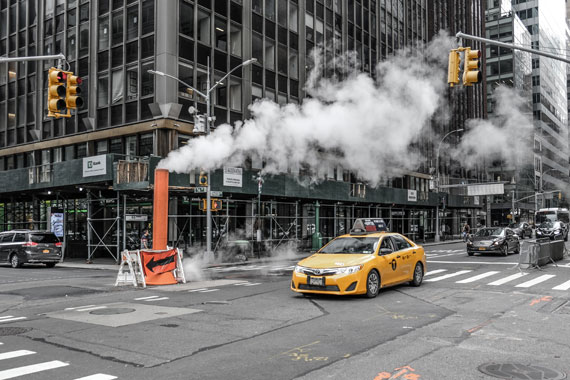
Photo captured by Clément Falize
Shoot Through the Steam
Getting up close and shooting through the steam can add a fascinating layer of texture to your images. It can create a dreamy or mystical effect, blurring parts of the frame and drawing focus to your subject. Be careful of your camera’s proximity to the steam, though, as prolonged exposure to moisture could damage it.
Places to Find Steam:
Here are some general locations within cities where you might find steam, perfect for your urban photography:
- Manhole Covers: Manholes often emit steam from the city’s underground infrastructure, providing an archetypical urban scene.
- Subway Vents: In cities with underground transit systems, subway grates frequently discharge steam, creating an interesting play of mist and city life.
- Heating and Power Plants: These facilities often produce steam as part of their operation, which can be seen escaping from chimneys or dedicated vents.
- Steam Pipe Networks: Cities with centralized heating systems have steam pipe networks running underneath the streets. The steam occasionally finds an outlet through maintenance vents.
- Construction Sites: Construction sites may have temporary steam pipes for various reasons, such as to keep concrete from freezing in cold weather.
- Sewage Plants or Pumping Stations: These facilities can sometimes emit steam as a byproduct of their operations.
- Laundromats and Dry Cleaners: Often, these places have steam vents on the side of their buildings which can create great opportunities for unique shots.
- Bakeries and Restaurants: These locations can produce steam early in the morning or during meal prep times, especially those with visible kitchen exhausts.
- Industrial Districts: Factories and other industrial locations can often be sources of steam, depending on the nature of their work.
- Cooling Towers: Often found on the roofs of large buildings, cooling towers can release plumes of water vapor, particularly noticeable on colder days.
Use People for Scale and Drama
Incorporate pedestrians walking through or interacting with the steam. They can provide a sense of scale and inject life into your shot, transforming it from a simple steam photo to a narrative of urban life. Wait for that serendipitous moment when a figure emerges from or disappears into the steam, adding a dose of drama or mystery.
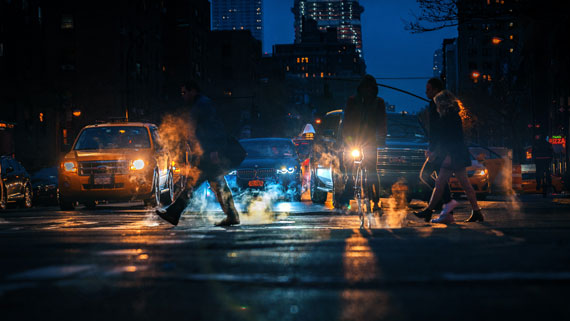
Photo captured by Sandy Ching
Experiment with Black and White
Black and white photography and steam make a stunning combination. It accentuates the contrast, highlights the texture of the steam, and gives the photograph a timeless, classic quality. It also allows you to concentrate on the shape and movement of the steam without the distraction of color.
Post-Processing
Adjust the contrast, shadows, highlights, and clarity to emphasize the steam. Be careful not to overdo it, though, as maintaining a natural look is key for powerful urban photography.
Steam photography in an urban setting is all about embracing the unexpected. It’s a dance with an unpredictable partner, a play of patience and spontaneity. Keep experimenting with different techniques, perspectives, and settings to capture the city’s steaming soul in all its transient beauty.
Remember, photography is a form of visual storytelling. Your goal should be to evoke emotion and tell a story with your image – whether it’s the city awakening at dawn, a mysterious figure disappearing into the mist, or a stark, industrial scene straight out of a noir film.
Venture out and let the city’s steam guide your lens to unseen narratives and unexplored emotions. Happy shooting!
For Further Training, Launch Sale Ending Soon:
Urban photography is not about traveling to a famous metropolis or owning an expensive camera. It’s about finding and capturing beauty in any city, or any town, with whatever camera you have at hand. That is why iPhone Photography School just released this new course, Urban iPhone Photography, with best-kept secrets to take stunning photos in any city…with the camera always in your pocket!
During its launch, the brand-new course is on sale at a deeply discounted price. It also includes a full happiness guarantee, if you are not satisfied with the course for any reason simply let them know for a full refund – so there is no risk in trying it.
Launch sale ending soon: Urban iPhone Photography Course at 80% Off
Like This Article?
Don't Miss The Next One!
Join over 100,000 photographers of all experience levels who receive our free photography tips and articles to stay current:
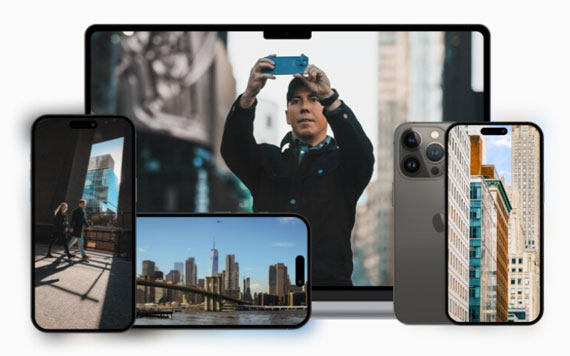


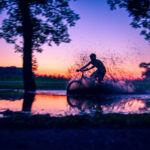


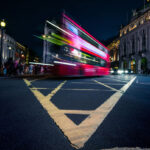
Leave a Reply